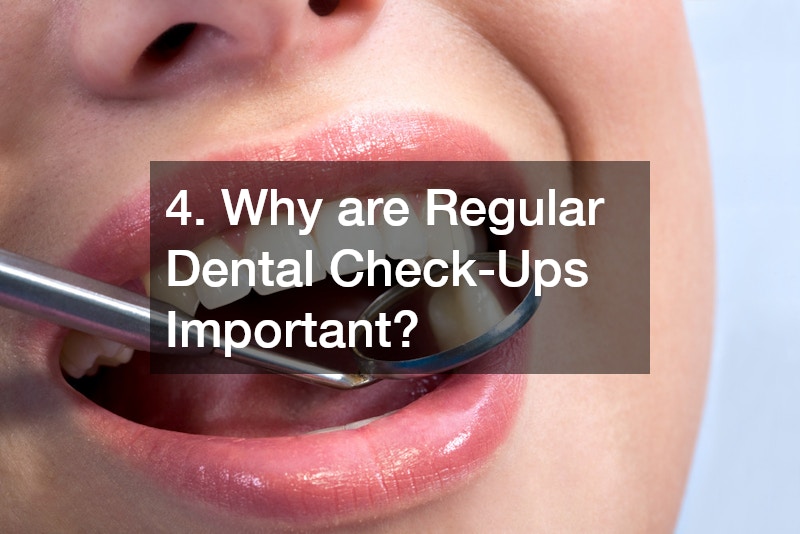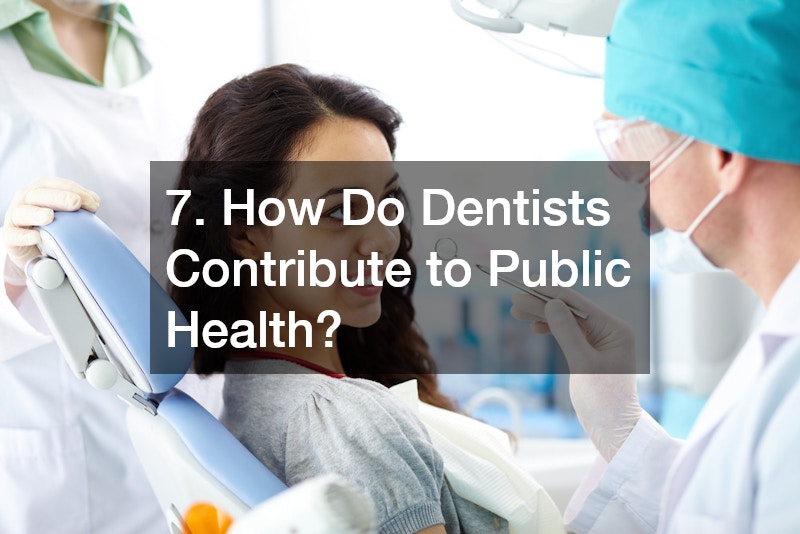We often take for granted the role of dentists in our lives, yet they play a crucial part in our overall health and well-being. In this extensive exploration, we delve into 10 interesting facts about dentists that reveal their expertise and dedication beyond just cleaning teeth. From their rigorous education to their community contributions, this article showcases the multifaceted roles dentists play in keeping our smiles healthy.
Understanding the life and work of a dentist can provide a deeper appreciation for their skills and dedication. As practitioners of dental medicine, dentists ensure our teeth, gums, and overall oral hygiene are in top condition. Let’s take a closer look at these professionals whose work is pivotal in promoting good health and preventing disease.
The dental profession is not just about fixing teeth but involves a comprehensive approach to health care. With new technologies and methods continually revolutionizing the field, dentists are at the forefront of medical advancements, helping to enhance patient care, comfort, and results. Read on to uncover 10 interesting facts about dentists that may surprise you.
1. What Educational Background Do Dentists Have?

Becoming a dentist requires a rigorous educational journey that starts with a bachelor’s degree, typically in a dental or science-related field. Prospective dentists must then attend dental school for four years, where they receive both classroom instruction and hands-on training. These education programs are designed to ensure dentists possess a thorough understanding of dental anatomy, pathology, and patient care.
After completing dental school, dentists must pass comprehensive national and state examinations before they can practice. This process ensures that each dentist is well-prepared to offer high-quality care. The path doesn’t end with schooling, as continuing education plays a significant role in maintaining skills up-to-date.
Throughout their careers, dentists participate in various professional development activities to maintain their licenses and certifications. Such activities often include seminars, workshops, and courses that focus on new dental technologies and techniques. Continuous learning is vital for dentists to stay ahead in a rapidly evolving field.
2. How Do Dentists Maintain Their Licenses and Certifications?
After acquiring their initial licenses, dentists must actively ensure these credentials remain valid. This often involves adhering to a set number of continuing education hours annually, which allows them to stay informed about the latest advancements in dental care. Participating in workshops, seminars, and advanced courses, dentists enhance their skills in areas like emergency dental services and dental implants.
Keeping up with certification requirements ensures that dentists are capable of providing top-notch care and adapting to new methods that could benefit their patients. Professional bodies, like the American Dental Association, often provide resources and opportunities for dentists to meet these demands. Furthermore, these organizations support dentists in maintaining high ethical standards and effective practice management.
Each state has specific regulations regarding license renewal, including exams or proof of continued education. This ensures that patients receive the most consistent and competent care possible. Through these continuous learning efforts, dentists not only adhere to professional standards but also improve their practice and patient outcomes.
3. What Are the Daily Responsibilities of a Dentist?
A typical day for a dentist involves a variety of tasks that aim to manage and improve oral health. These tasks include conducting regular check-ups, diagnosing dental conditions, and developing treatment plans. Dentists also perform specialized procedures such as dental implants and extractions to restore function and aesthetics.
In addition to treating patients, dentists oversee clinical staff, manage dental equipment, and maintain patient records. Their role heavily emphasizes preventive care, aiming to educate patients on proper oral hygiene practices to prevent future issues. Regular interactions with patients also allow dentists to address concerns like dental anxiety and provide reassurance.
The responsibilities of a dentist extend beyond the chairside, as they often work closely with dental hygienists, receptionists, and cosmetic dentists to ensure the practice runs smoothly. Coordination between team members helps provide comprehensive care tailored to each patient’s needs. Overall, the daily operations of a dental practice require significant organization and interpersonal skills.
4. Why are Regular Dental Check-Ups Important?

Regular dental check-ups are essential for maintaining optimal oral health, as they provide dentists the opportunity to detect issues early. Early intervention is crucial, whether it’s spotting cavities, signs of gum disease, or malfunctioning dental work. By addressing these issues promptly, dentists prevent complications that could lead to more invasive treatments later.
Check-ups also allow for routine cleaning, which removes plaque and tartar build-up that regular brushing can’t eliminate. These visits often include procedures such as teeth whitening services that enhance the appearance of teeth, aligning with patient expectations of a healthy, aesthetically pleasing smile. Routine check-ups are the cornerstone of preventive care, helping maintain both oral and overall health.
Moreover, regular visits help establish a strong patient-dentist relationship, which can alleviate fears and increase compliance with treatment recommendations. By offering affordable dental care, dentists ensure that preventative measures are accessible to more people. Regular check-ups further a culture of proactive health management, reducing long-term oral health issues.
5. How Do Dentists Handle Dental Anxiety?
Dental anxiety is a common concern among patients and can deter many from seeking necessary care. Dentists are trained to recognize the signs of anxiety and have strategies to ease patient fears, such as creating a relaxing environment and offering sedation options when appropriate. Communication is key, and discussing procedures in simple terms can often alleviate fears.
Many dentists offer amenities like calming music, television, or aromatherapy to distract and relax patients during their visits. Practices today are more tailored towards creating a reassuring experience that addresses both physical comfort and emotional well-being. Understanding patient anxiety and offering personalized solutions ensures a smoother, less stressful appointment.
In addition, advances in dental technology have made many procedures quicker and less invasive, helping to reduce anxiety. By ensuring that patients are comfortable and informed, dentists can effectively treat those who previously may have avoided dental care. Providing care for sensitive teeth and introducing therapy options are additional ways dentists help manage anxiety.
6. What Innovations Have Shaped Modern Dentistry?
The field of dentistry has undergone significant technological advancements, transforming how care is delivered. One notable innovation is digital imaging, which provides detailed views of the mouth and teeth, allowing for precise diagnosis and treatment. Tools like intraoral cameras enable dentists to show patients areas of concern, enhancing understanding and cooperation.
Another significant breakthrough has been the development of modern dental materials, such as porcelain and composite resins, which are used in dental veneers and crowns. These materials are not only durable but also mimic the natural appearance of teeth, offering improved outcomes in cosmetic and restorative dentistry. Innovations like these continue to push the boundaries of what dental care can achieve.
Orthodontic advancements like Invisalign have revolutionized how teeth are straightened. Unlike traditional braces, Invisalign aligners are less visible and more comfortable, offering effective treatment without the associated aesthetic concerns. Align technology represents just one of the many ways dentistry is evolving to meet modern patient needs and preferences.
7. How Do Dentists Contribute to Public Health?

Dentists play a significant role in supporting public health by providing critical preventive care and education. They help spread awareness about the impact of oral health on overall health, emphasizing the prevention of diseases such as diabetes and heart conditions. Educating communities about proper oral hygiene fosters healthier lifestyles and reduced healthcare costs.
Moreover, many dentists participate in community outreach programs that offer free or reduced-cost dental services to underserved populations. These initiatives ensure that more individuals have access to essential dental care, from basic check-ups to more complex procedures. Programs supported by family dentists often target schools, senior centers, and low-income neighborhoods.
Through these efforts, dentists significantly impact national health metrics, reducing the incidence of dental diseases and associated complications. By integrating dental care into broader public health policies, the profession helps achieve more comprehensive healthcare systems. Continued community involvement ensures that dental professionals remain integral contributors to public well-being.
8. What is the Future of the Dental Profession?
The future of the dental profession looks promising, with emerging technologies and methodologies paving the way for more sophisticated and efficient care. Advances in dental materials, procedures, and equipment will allow dentists to offer treatments that are faster, more comfortable, and more effective. These enhancements will likely lead to improved patient experiences and outcomes.
There is also an increasing focus on integrating technology with dental care. For instance, the use of AI and machine learning in diagnostics promises to enhance treatment accuracy and efficiency. As such, dentists will need to continue their education and adapt to these advances, ensuring they are well-equipped to provide the best care possible.
The profession is also witnessing shifts towards multidisciplinary practices, where dental care includes specialties like orthodontics, periodontics, and oral surgery within single health facilities. This integrated approach aims to provide seamless, comprehensive care that addresses a wide range of patient needs efficiently. Overall, the evolution in dental care promises exciting developments for patients and practitioners alike.
9. What Makes a Dentist Successful?
The success of a dentist can be attributed to a combination of factors, including technical skill, patient rapport, and effective practice management. Proficiency in both routine and complex procedures, such as dental implants and restorative dentistry, ensures high-quality patient care. A passionate and dedicated approach to ongoing professional development is also essential.
Equally important is a dentist’s ability to build trust and communicate openly with patients. Understanding patient concerns and providing clear explanations fosters strong relationships and loyalty. A successful dentist also emphasizes preventative care, educating patients on practices that maintain oral health between visits.
Managing a successful practice requires organization, a strong support team, and embracing advancements like digital recordkeeping and modern treatment technologies. By offering comprehensive services and patient-centric approaches, successful dentists often see high patient satisfaction and referrals. This holistic approach to dentistry ensures longevity and fulfillment in the profession.
10. What Surprising Facts Might You Not Know About Dentists?

There are plenty of surprising facts about dentists that many people may not be aware of. For instance, dentists were once known as “barber surgeons,” performing both basic surgery and dental care. This historical tidbit shows the evolution of dentistry into a specialized field dedicated solely to oral health.
Another interesting fact is that dentists are often among the most trusted professionals in healthcare due to their role in emergency dental services and regular care. They maintain a unique balance between medical treatment and cosmetic improvement, catering to diverse patient needs. This versatility keeps the profession dynamic and engaging.
More unexpectedly, dentists earn significant accolades for their contributions to science and community well-being. Their work in sensitive teeth services and community outreach highlights their commitment to improving public health. These lesser-known aspects showcase that the scope of dentistry extends far beyond routine check-ups and fillings.
Knowing These 10 Interesting Facts About Dentists
Dentists play a vital role not only in maintaining oral health but also in contributing to our overall well-being. The 10 interesting facts about dentists outlined above provide deeper insight into the intricacies of the profession and its importance in everyday life. Understanding these aspects underscores the significance of dental care and fosters greater appreciation for the work dentists do.
The continuous evolution in the dental field, driven by technological advancements and innovative approaches, promises exciting changes for practitioners and patients alike. As professionals dedicated to lifelong learning and community service, dentists help shape healthier societies, emphasizing preventive care and health education.
In recognizing these contributions, it becomes clear that dentists are more than healthcare providers; they are essential members of communities committed to enhancing the quality of life for individuals. The ongoing development within the profession ensures improved care, access, and outcomes, aligning with the ultimate goal of creating brighter, healthier smiles for everyone. If you have any more questions about dentists, you can visit your local dentist’s office, and they should be able to answer any questions that you have as well as give any expert advice on dental care for you.
